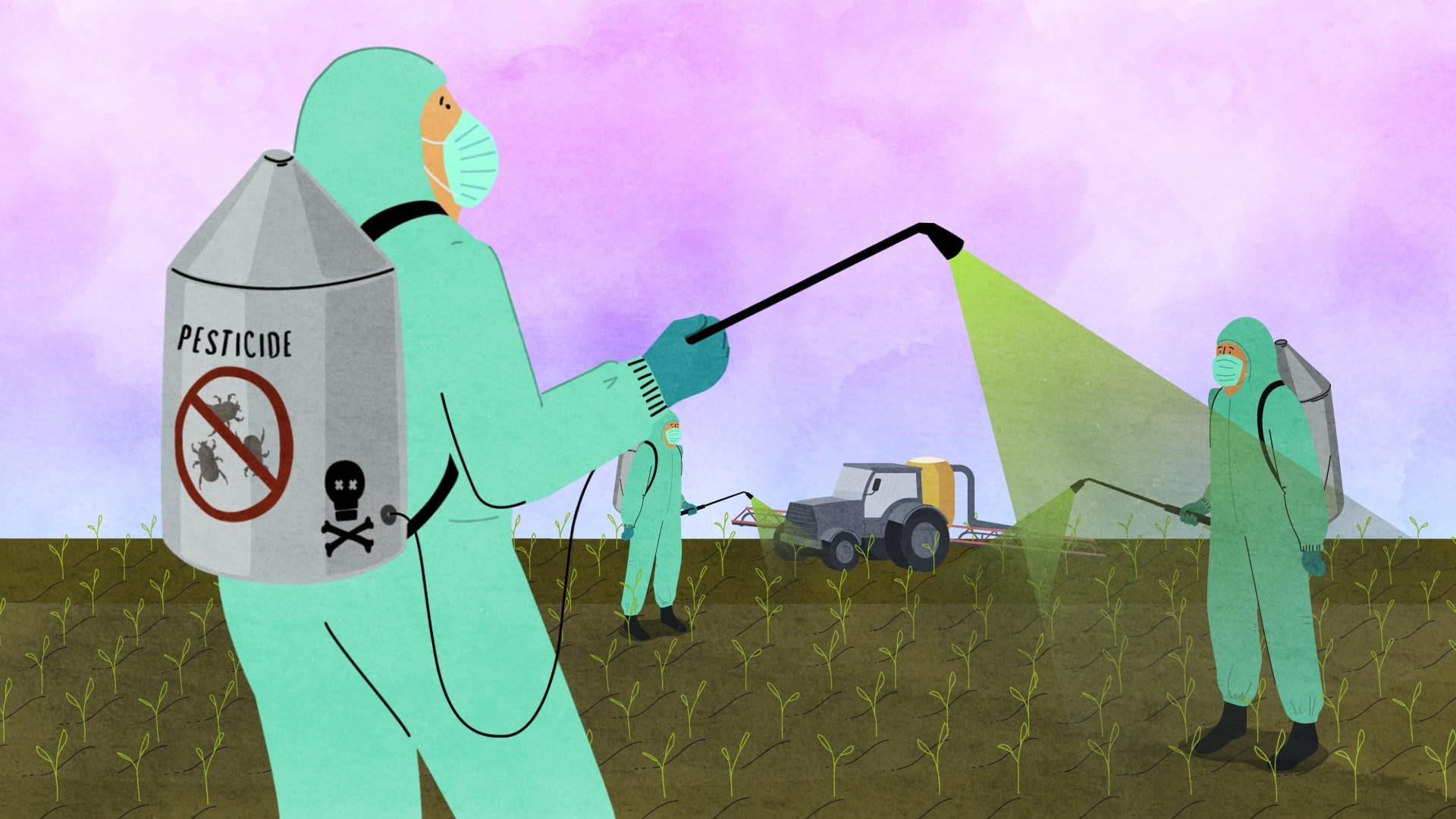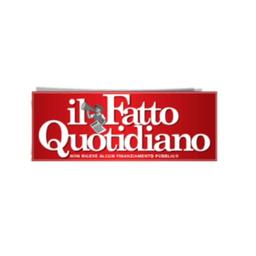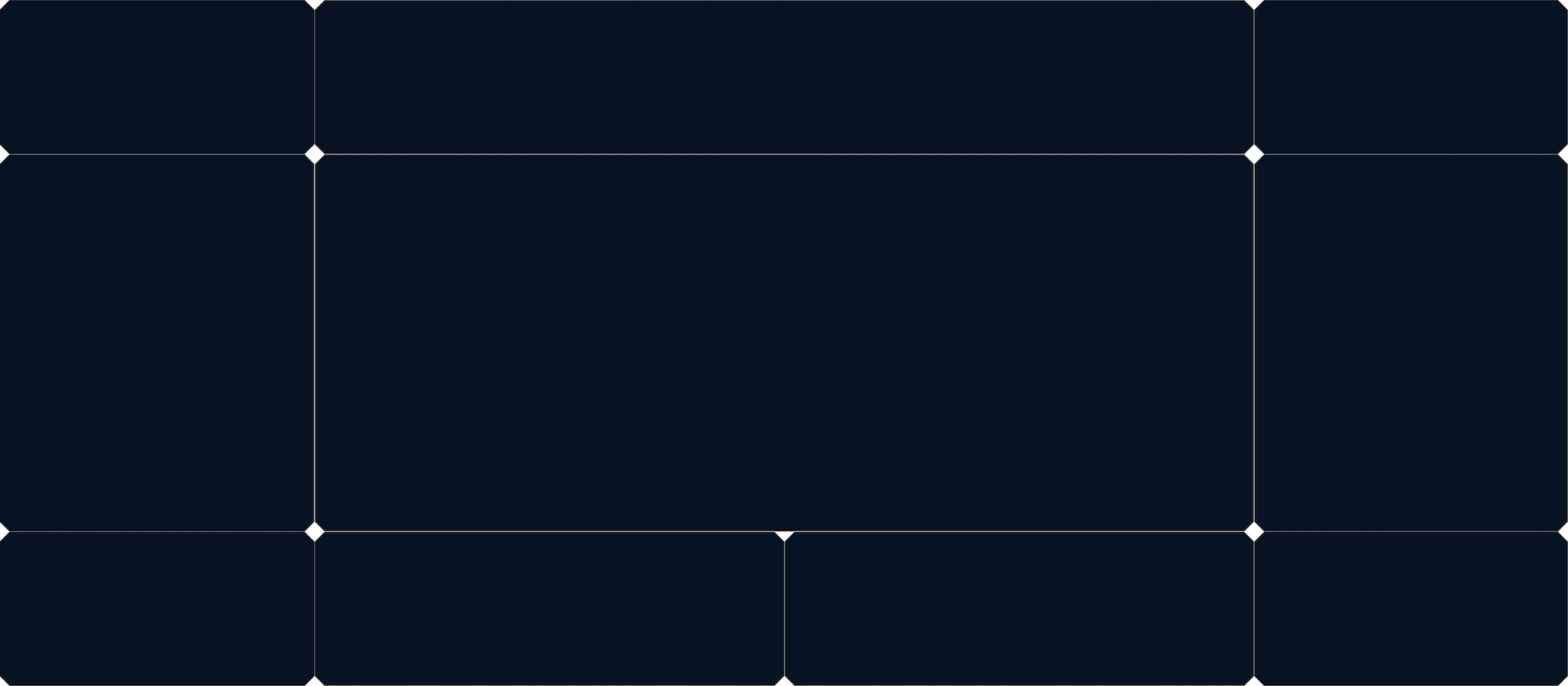Environment / Silent Death
Silent Death
Europe is stuck in a toxic relationship. For decades, farmers have relied on chemicals to produce the food that feeds the continent. The perils of pesticides are widely known, but their use remains largely unchecked. As a biodiversity crisis unfolds, can Europe address its silent pesticide problem?
June 2022

“We are in a biodiversity crisis. Species are going extinct faster than they have for 65 million years, since the meteor wiped out the dinosaurs. And it is accelerating,” warns Dave Goulson, professor of biology at the University of Sussex in England. Insects are his main specialty. Not only do they make up two-thirds of all known species, but they are the ones that enable other living organisms, not least by pollination.
Industrial-scale agriculture and monoculture crops are feeding the world, but at huge cost to the environment. A toxic mix of pesticides and fertilizers continue to be sprayed over vast areas, while swathes of natural land are razed for crops, causing widespread erosion of ecosystems and biodiversity. Chemicals and agribusiness are not the only culprits. Climate change is another key driver, according to scientists. Together, they form a looming disaster.
The science analysed by IE during our months-long research is crystal clear in showing how pesticides harm wildlife, plants and humans – they may cause cancers, mutations and reproductive difficulties. But Europe is yet to wake up to its deep-rooted pesticide problem. Today, over 400 different active pesticide substances are approved in the EU. Global pesticide sales have doubled in the last 20 years, to about €52 billion in 2019. The European market for agricultural pesticides is one of the largest in the world, with sales of around €12 billion in 2019.
The EU is also the global leader in pesticide exports. Since 2018, only China has exported more pesticides than Germany. Then comes France, the US, Belgium, Spain and the UK as the largest country distributors.
While many remain silent on the biodiversity crisis amid this booming trade, ordinary citizens have realized things must change. More than one million Europeans signed the “Save the bees and the farmers!” initiative, which called for a phase-out of chemical pesticides by 2035. Many local communities in Europe, several visited by IE, are trying to transform the way agriculture is done in their regions. And farmers interviewed by IE reporters, from Greece to Norway and from Portugal to Poland, say they would like to reduce their use of pesticides – if only alternatives were affordable.
The strategy, though, is up against a counter-alliance of chemical companies and agribusiness lobby groups, Investigate Europe research and disclosures by NGOs and other media shows. Together with conservative politicians and other vested interests, they are pushing to defend the status quo. The Ukraine war has handed opponents to regulation another argument: not to reduce pesticide use and risk lower agricultural yields at a time when global food security is at stake.
Others insist that the time to act on pesticides and biodiversity is now. Entomologist Josef Settele predicts that by continuing with the current agricultural system, we are ultimately “putting the food security of the entire human race at risk.”
Read more on the findings of our Silent Death investigation on our site or with our media partners below.
More from Silent Death
Interviews

Help bringour cross-border journalism to life.Support Investigate EuropeDonate
Publications

Ökosysteme in Gefahr: Wie ein EU-Leitfaden riskante Pestizide fördert
Der Tagesspiegel, Germany
27 September 2022
.jpg&w=256&q=75)
Wie ein EU-Leitfaden den Ersatz riskanter Pestizide verhindert
Der Standard, Austria
26 September 2022

Analysis: Pesticides are creating a biodiversity crisis in Europe
Mongabay, US
10 August 2022

Europas Pestizidproblem und das Artensterben
Rheinpfalz, Germany
21 July 2022

Ingen vet hvor mye plantegift som brukes i Norge
Dagsavisen, Norway
30 June 2022

“Insufficiente”: l’Italia rimandata a settembre dalla Commissione
Il Fatto Quotidiano, Italy
26 June 2022

Metodi tradizionali e nuove tecnologie: la strada per il “bio”
Il Fatto Quotidiano, Italy
26 June 2022

La “guerra delle mele”: a Malles il Comune vota contro i pestidici
Il Fatto Quotidiano, Italy
26 June 2022

Ecco la “trappola dei pesticidi”: i contadini ostaggio dei colossi
Il Fatto Quotidiano, Italy
26 June 2022

Preguntas y respuestas: ¿Por qué preocuparse por los pesticidas?
infoLibre, Spain
25 June 2022

Malles Venosta, el pueblo italiano que prohibió en referéndum el uso de pesticidas
infoLibre, Spain
25 June 2022

Pesticidas: guerra aberta na Europa sobre um perigo invisível
Público, Portugal
25 June 2022
.jpg&w=256&q=75)
Wie Österreich in Brüssel das neue EU-Pestizidgesetz torpediert
Der Standard, Austria
25 June 2022

Koldo Hernández: “Los datos sobre uso de pesticidas en España no son reales”
infoLibre, Spain
24 June 2022

La UE quiere reducir el uso de pesticidas, pero no se sabe si tendrá las herramientas para medirlo
infoLibre, Spain
24 June 2022

El negocio multimillonario de los pesticidas que se resiste a cambiar
infoLibre, Spain
23 June 2022

El jefe de los agricultores europeos: “No se pueden prohibir los pesticidas si no hay una solución alternativa”
infoLibre, Spain
23 June 2022

Gra O Plon
Frontstory, Poland
23 June 2022

Frans Timmermans: to większe zagrożenie niż konflikt w Ukrainie
Onet, Poland
23 June 2022

Janusz Wojciechowski: zboże z Ukrainy można dowieźć najdalej do Katowic
Onet, Poland
23 June 2022

Wojna o pestycydy. Recepta na ekologiczną katastrofę i strach przed globalnym głodem
Onet, Poland
23 June 2022

En ny EU-lov vil pålegge bønder å sprøyte mye mindre. Hvordan skal det gå?
Dagsavisen, Norway
23 June 2022

Halálos csapda: kiirtjuk az élővilágot, hogy legyen mit ennünk
Telex, Hungary
23 June 2022

Wie Lobbys und rechte Politiker die Reduktion von Pestiziden behindern
Der Tagesspiegel, Germany
23 June 2022

Pesticidas: hay una guerra abierta en Europa por un peligro invisible
infoLibre, Spain
23 June 2022

Sjefen for EUs grønne skifte: «Gjør vi ikke noe nå, risikerer vi matkrise i Europa»
Dagsavisen, Norway
22 June 2022

Pesticidi, a Bruxelles è già battaglia: Italia&C. contro la riforma
Il Fatto Quotidiano, Italy
20 June 2022

Φρανς Τίμερμανς, Αντιπρόεδρος Κομισιόν: «Η επισιτιστική κρίση θα έρθει αν δεν μειώσουμε τα γεωργικά φάρμακα»
Reporters United, Greece
20 June 2022

„Ohne Pestizidreduktion droht eine Nahrungskrise“
Der Tagesspiegel, Germany
20 June 2022

Frans Timmermans: “Sem redução de pesticidas teremos uma crise alimentar na Europa”
Público, Portugal
20 June 2022

EU vil kutte plantevernmidler, men møter en låvevegg av motstand
Dagsavisen, Norway
20 June 2022

‘Without pesticide reduction, we’ll have a food crisis in Europe’
EUobserver, Belgium
20 June 2022

Frans Timmermans: “Si no se reducen los plaguicidas, tendremos una crisis alimentaria en Europa”
infoLibre, Spain
20 June 2022

Pesticidi, Frans Timmermans: “Non usiamo la guerra in Ucraina come alibi per tornare al passato”
Il Fatto Quotidiano, Italy
20 June 2022



